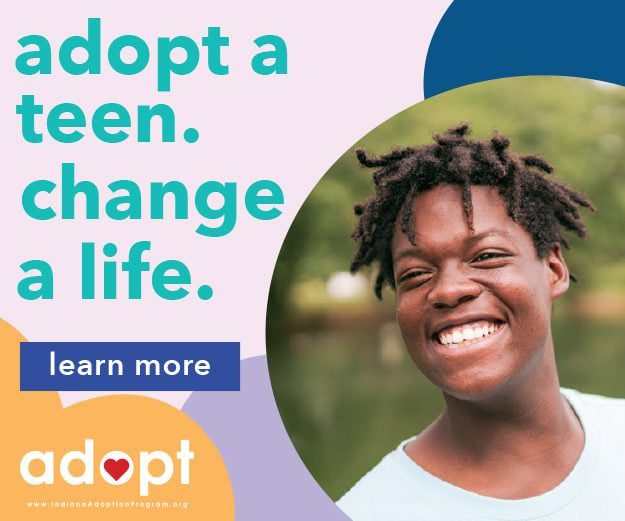Recently a group of influential African-American men held a very important meeting at the Lilly Boys & Girls Club facility on South State Ave.
Their meeting was not about a lucrative business deal or major political decision, but something even more critical: the state of local youth and the urgent need for mentors.
Entrepreneurs, law enforcement officials, leaders from community organizations and mentors representing 100 Black Men of Indianapolis, Big Brothers/Big Sisters of Central Indiana and the Boys & Girls Club agreed that now more than ever, African-American men are needed to serve as positive male role models for youth.
“We are looking at complex times, a changing value system and a lot of new and old challenges in our community,” said Ontay Johnson, executive director of 100 Black of Men of Indianapolis, which provides mentoring-based youth development programs throughout the year.
Johnson added that while many see today’s youth as more troubled than those from previous generations, he sees promise in youth that can be refined by dedicated mentors.
“People have written this generation off and I beg to differ with that,” he said. “I believe that with guidance, love and support, this generation will be great.
According to the National Mentoring Partnership, 40 percent of an average teenager’s waking hours are spent without companionship or supervision. Youth who meet regularly with their mentors are 46 percent less likely than their peers to start using illegal drugs and 27 percent less likely to start drinking.
Rick Whitten, executive director of the Boys & Girls Clubs of Indianapolis, noted that the reality is that many teens in low income, high poverty circumstances don’t have positive role models and/or stable homes.
“The young men living in communities that perpetually display a cycle of poverty and dysfunction desperately need mentors,” he said.
Whitten noted that youth-serving groups in the community urgently need volunteers for youth that are considered “high-risk” and need the most support.
“There’s been a lot of talk at rallies and otherwise about creating opportunities for individuals to help teens, however, programs that offer mentoring already exist; the time and commitment from the community is what’s needed to make a larger impact,” he said. “Getting involved and being part of the solution is easier than people may think.”
Officer Kendale Adams, a spokesman for the Indianapolis Metropolitan Police Department has noticed an increasing number of professionals who grew up in rough inner city neighborhoods, but now live in low-crime suburban areas and seem to have forgotten about youth who are still left behind.
“They may live in Carmel, Fishers or Lawrence and say ‘well, my kids go to nice schools, so that issue (troubled youth) does not impact me,” Adams said. “Yes, it does, brother. Because you might come down to this community one day to see family or do something else, and get robbed by the same young man you could have helped.”
Indianapolis entrepreneur James Caldwell-Acha-Ngwodo, an advisory board member and mentor with the Wheeler Dowe Boys & Girls Club on the city’s Eastside, believes there is a shortage of young professionals among mentors.
“There’s still a generational gap in some circles where mentoring happens,” he said. “There aren’t a lot of young professionals in those groups represented.”
Caldwell-Acha-Ngwodo added that both through media and in their own neighborhoods, at-risk youth often see negative images that sensationalize drugs and criminal activity.
“The alternative would be a successful young professional standing up and saying, ‘Hey, this is who I am, I came from the same neighborhood, but I was able to do something different,’” Caldwell-Acha-Ngwodo said. “This is a call for our young professionals to get into the game.”
Fraternities are among the groups that are making an effort to meet this need. Next week, the local Iota Lambda Chapter of Alpha Phi Alpha Fraternity will take a group of youth to the Underground Railroad Freedom Center in Cincinnati to give them insight into their heritage and history.
“Mentoring is important because it gives you a chance to give back, show our kids how to move forward and help provide them with the opportunities to be successful,” said Alpha Phi Alpha member Jesse Reynolds.
Johnson believes the goal of making sure everyone has a positive male role model can be met if everyone, whether they are with an organization or not, does what they can to assist a young person.
“We need to make a collective impact,” Johnson said. “It’s not just one individual’s or one organization’s problem, it’s all of our problem, and these are all of our children. One person or group can’t do it alone. We need to act collectively.”
Next week: The Recorder will look at the challenges mentors have noticed among youth, and speak with teens whose lives have been impacted by mentors.
For more information
– Boys & Girls Club
of Indianapolis
Visit: bgcindy.org
(317) 920-4700
– Big Brothers/Big Sisters of
Central Indiana
Visit: bebigforkids.org
(317) 921-2201
– 100 Black Men of Indianapolis
Visit: 100Blackindy.org
(317) 921-1276







